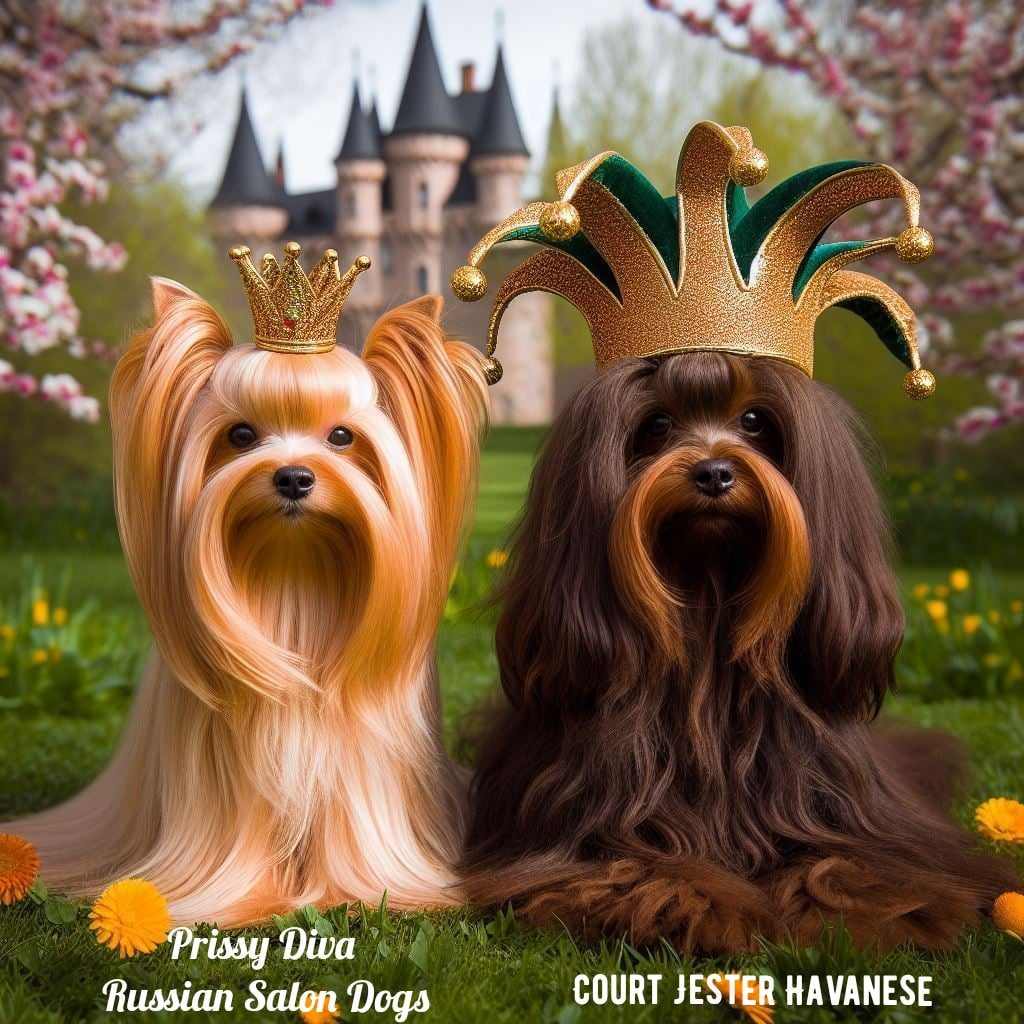The Havanese is a sweet, cheerful, delightful, clownish, little breed who wants nothing more than to love and be loved by their humans. Just one look into their eyes and they reach your heart and soul.
Considered a Bichon type of dog the Havanese is the national dog of Cuba. It is believed to have been developed from the now extinct Blanquito de la Habana or Little white Dog of Havana. Some common names for them are Havana Silk Dog, Havanese Cuban Bichon and Bichon Havanese. Not to be confused with the Bichon Frise of French origin as they are not the same.
They may be small in size, but they are a very sturdy dog. Their long tail curls up over the back and is so often seen wiggling in happiness and delight. They are considered to be hypoallergenic and have hair, not fur, with a double coat that is long and silky and graces us in many colors. They are often called magical color changing dogs because most Havanese will change color and continue to change their entire life, particularly the Sable. Most pet owners prefer to keep them in short puppy cuts or shaved down to help reduce daily grooming requirements.
Fun Fact: Because their back legs are a little longer than their front, they have the most adorable bouncy gait which also gives way to many leaps and acrobatics during the zoomies and playtime. I love to watch them play in the backyard and trot across the room with such an effortless care-free spring in their step.
Havanese are eager to please, very spirited, and curious in nature and form a strong bond with the people they love. Nicknamed the Velcro dog, they do not thrive in environments where they are left for too many hours alone, such as full-time employment outside of the home. They are an ideal family pet and excellent with children, though all children should be taught the proper way to handle dogs. Socialization, as with any dog, is important from birth and beyond to help with noise acclimation, become accustomed to grooming, to avoid anxiety in situations away from home and so that they don’t become shy of strangers which goes against their inherent outgoing trait. However, they each have their own personalities and not all, no matter how well socialized, will fall into the same generic personality trait of the breed! Sometimes there are some that are just simply shy around strangers until they get to know them while others can’t wait to jump in their lap and lavish them with kisses. To many Havanese, they believe the world revolves around them and all should lavish them with attention to which they give unabashed love in return.
Exercise is important for all dogs to keep them healthy. Havanese are not a high energy dog and do not need rigorous daily exercise. Most are happy with a few romps in the yard, fetch, a good walk around the neighborhood, or getting in their five-minute zoomies. Then they easily settle down on the couch for a nap excluding puppies who come in a broad range of energy needs.
Havanese are not a yappy dog, but many will warn you when a stranger appears or something seems amiss to them but will stop barking once given the chance to greet the stranger or assess the situation. Mine, often feel the urge to tell us when the Mourning Doves are resting on the driveway, or they catch sight of one of our chickens.
The AKC standard states the Havanese height is between 8.5-11.5 inches. Weight is typically between 7-14 pounds though obviously some are above or below that spectrum. The life expectancy is 14-16 years.
I have barely even scratched the surface in my description of the Havanese and could probably write a book! If you would like to learn more, the AKC also has excellent insight into their traits and characteristics in the following link.
